Can you just turn up at a registry office and get married? What You Need to Know
Are you dreaming of a simple and intimate wedding without all the fuss? A registry office wedding might be just what you’re looking for. However, you can’t just turn up and get married on the spot. There are steps you need to follow to make sure everything is legal and smooth. You’ll need to give notice of your intent to marry at least 28 days in advance and ensure you’re eligible to marry, such as being over 18 and not currently married.
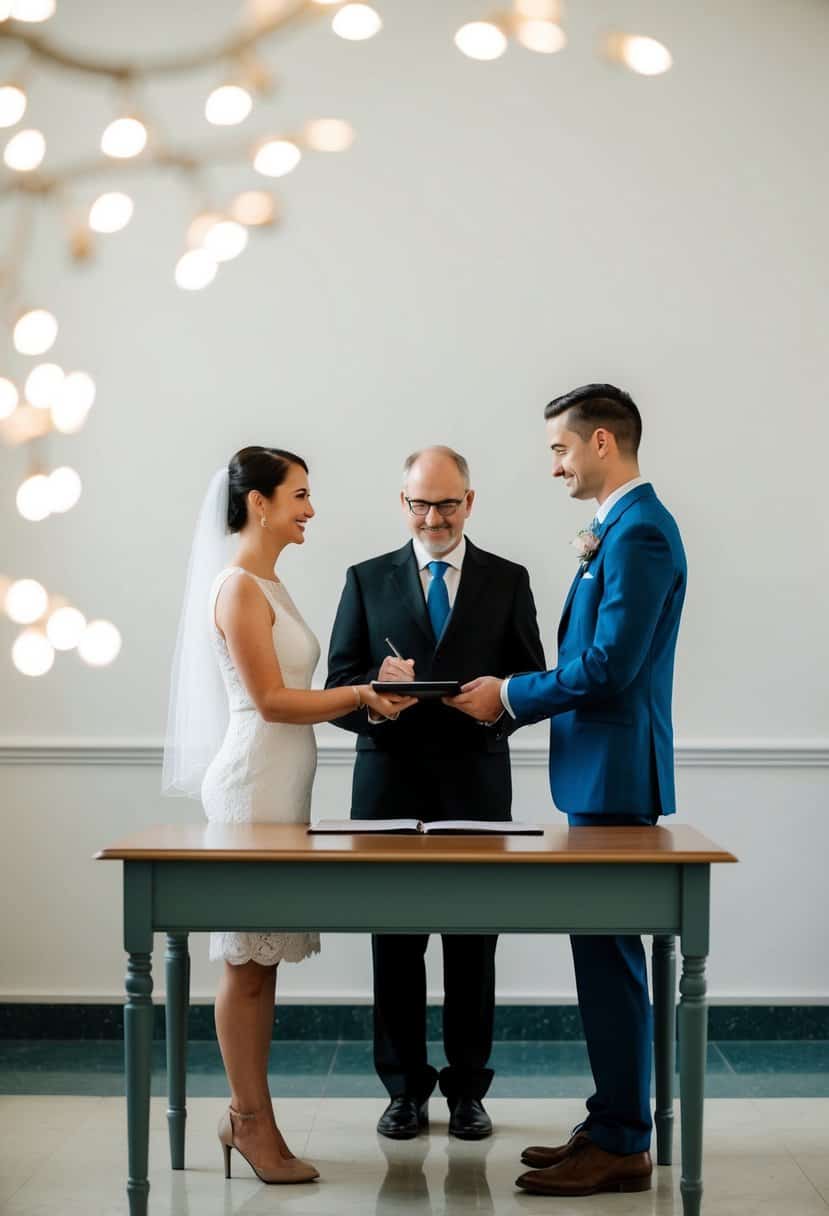
At a registry office, you’ll find a straightforward process that focuses on the legal marriage ceremony. It’s perfect for couples who want a recognizable ceremony without the extra costs. The environment is typically more relaxed, and you can still personalize some aspects, like music or readings, to make it special.
Planning your day at a registry office can also be a great option if you want to keep things low-key yet meaningful. You won’t be walking down the aisle in a grand venue, but you will be starting your new life together, and that’s what matters most.
Overview of Registry Office Weddings
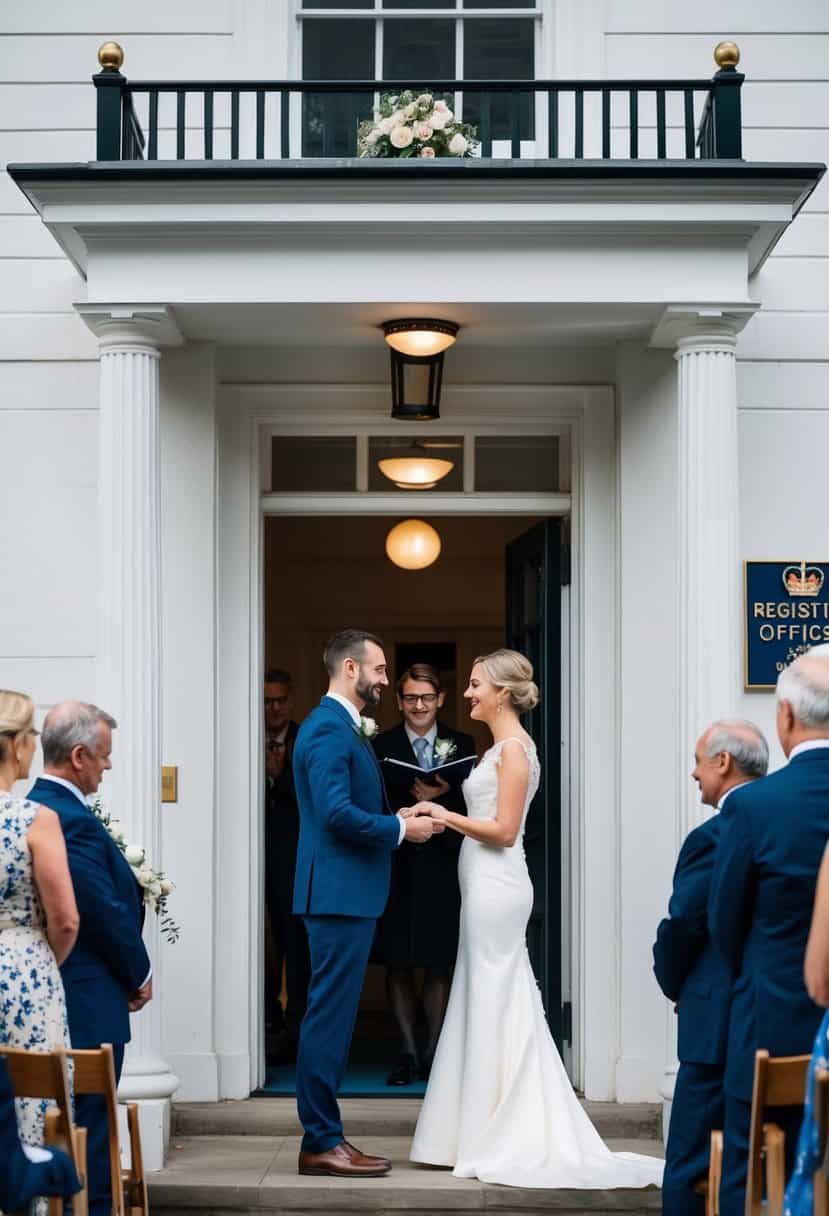
Registry office weddings offer a straightforward and often more affordable option for couples. The ceremonies focus on legal aspects and are ideal for those seeking a non-religious occasion. Understanding the differences between a civil ceremony and a religious wedding can help you decide which is best.
What Is a Registry Office Wedding?
A registry office wedding is a legal ceremony performed at a local council office. This type of wedding is ideal for couples who want a simple and straightforward ceremony without the trappings of a religious service. The focus is on the legal union itself, requiring minimal planning and fewer costs compared to traditional weddings.
To marry at a registry office, you need to book in advance and give notice of your intent to marry. Notice involves meeting certain legal requirements and fees like the registrar fee, typically around £46. The ceremony can be as personal as you wish, though it tends to be short and formal without religious references.
Comparing Civil Ceremony and Religious Wedding
A civil ceremony is a non-religious service conducted by a government official. It’s often chosen by couples looking for flexibility in location and structure. Unlike religious weddings, civil ceremonies avoid traditional rites and focus solely on the union’s legal aspects.
In comparison, a religious wedding often involves a lengthy ceremony with customs or rituals tied to a specific faith. You might find religious weddings more costly and time-consuming to plan. Choosing between them may depend on factors like personal beliefs, family preferences, or budget considerations. Each option offers distinct experiences designed to meet different needs.
Legal Requirements and Eligibility
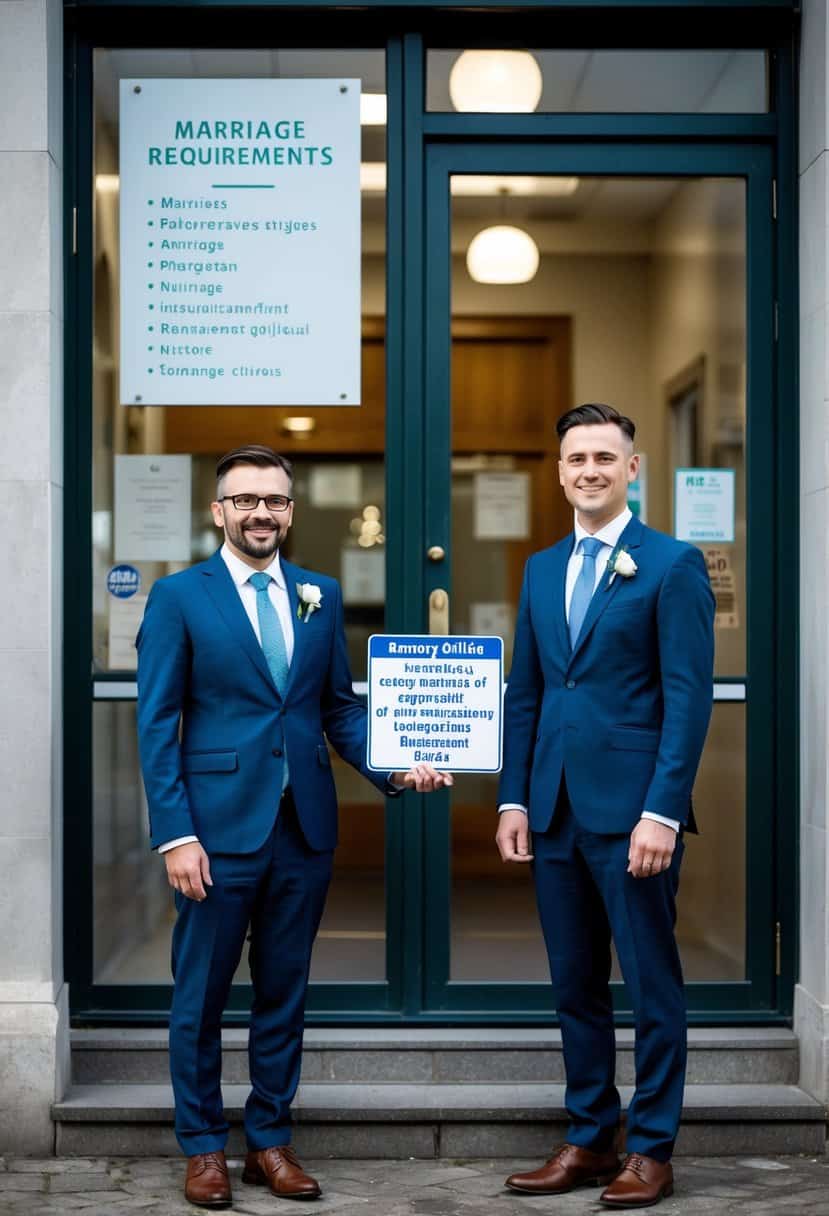
When getting married at a registry office, you must meet certain legal requirements. It’s important to understand who is eligible to marry and what documents you’ll need to provide.
Proving Eligibility to Marry
To be eligible to marry, both parties must be at least 18 years old. If you are younger, parental consent is required. You cannot be currently married to someone else. In some cases, you might need to present a proof of divorce if you were previously married.
Mental capacity is crucial. You should fully understand the nature of marriage and be sober when entering into it. Find out more eligibility criteria on the UK government website.
What Documentation Is Needed?
You’ll need to bring specific documents. A passport or birth certificate usually suffices to verify your name, age, and nationality. Additionally, a utility bill can confirm your address. If your name has changed, provide the legal document showing the change.
For a smooth process, it’s best to gather these documents ahead of time. Completing all paperwork correctly is essential to receive your marriage certificate, making the process stress-free and efficient. If you need more detailed guidance, this resource might help.
The Procedure at the Registry Office

Getting married at a registry office is a straightforward process. It involves notifying the local registrar and completing some legal formalities. You need to ensure timely arrangements to secure your desired wedding date.
Giving Notice to the Registrar
To get married, you must give notice to the registrar at your local registry office. This involves filling out a marriage notice form. You’ll need to do this at least 28 days before your wedding date. Depending on the exact location, some details may vary, but the basic requirements are similar.
Bring identification documents, such as a passport or birth certificate. You’ll also need proof of address, like a utility bill. There is a fee, usually around £35 per person, for this process.
The Marriage Schedule and Certificate
After giving notice, the next important step is obtaining your marriage schedule. This document outlines all the necessary details about the ceremony and is essential for the marriage to take place.
You can collect your marriage schedule shortly before the wedding day, and it must be presented to the registrar conducting the ceremony. This document is vital because, after saying your vows, it gets signed during the ceremony.
Once signed, the marriage becomes legally binding, and you receive your marriage certificate. This certificate proves your marriage and can be used for official purposes. If the ceremony and paperwork are handled correctly, you’ll have a smooth experience at the registry office.
Planning Your Registry Office Wedding
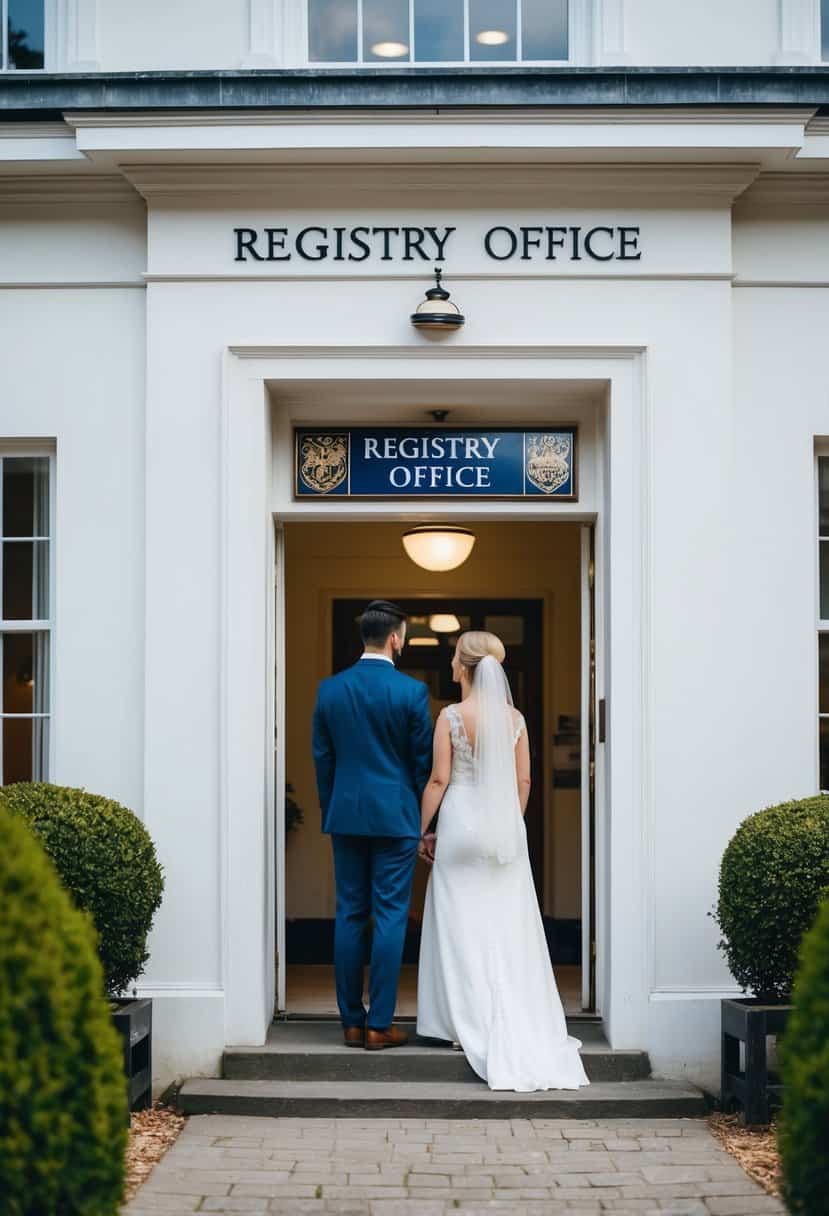
Planning a registry office wedding involves selecting the right venue and making personal touches to your ceremony. You might focus on location, costs, and available dates. Personalizing the ceremony is another important step, as many options are available for decorations, music, and vows.
Choosing Your Registry Office
Select the registry office that suits your needs. Consider the location’s convenience for you and your guests and if the ceremony venue can accommodate everyone comfortably. Most registry office weddings are intimate, often with limited seating, so double-check how many guests you wish to invite.
Cost is another factor. Fees include hiring the room, paying the registrar, and giving notice of your wedding. At many places, you can expect to pay around £46 for the registrar. Be sure to check if there are any additional fees for specific time slots or larger rooms.
Customizing Your Ceremony
Even with a civil setting, you can add personal touches to your ceremony. Work with the civil marriage celebrant or officiant to create vows that reflect your relationship. You may also select specific readings or music to symbolize your bond.
Decorations may be limited by the venue rules, but simple additions like flowers or ribbons can enhance the space. Outfit choices are also important; consider the season and comfort as part of your planning. Opt for attire that allows you to enjoy the day without distractions.
After the Wedding
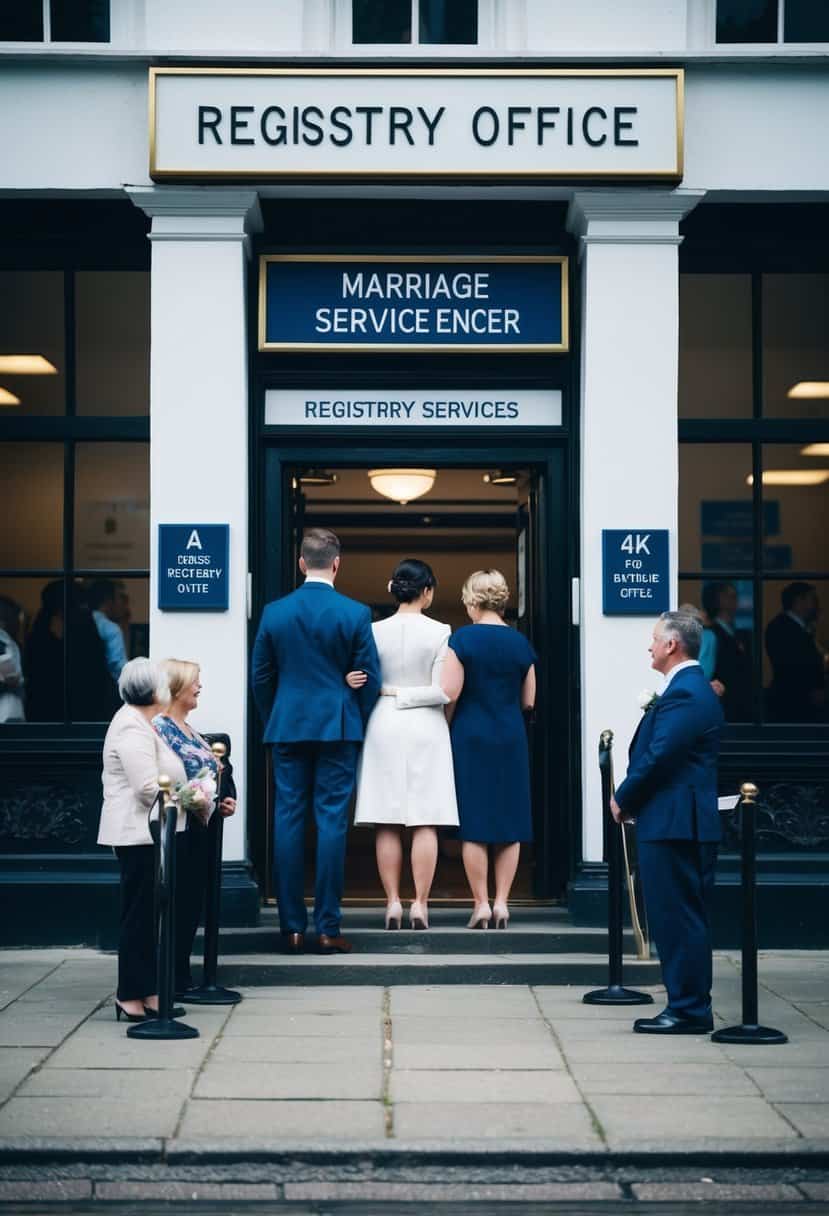
Once your wedding is over, there are a few important tasks to handle. You’ll need to focus on legal considerations and potential name changes for your personal documents.
Further Legal Considerations
After your wedding, obtaining your marriage certificate is essential. This document is proof of your marriage and may be necessary for various legal purposes, such as applying for health insurance or tax benefits. It’s also useful in case you need a death certificate in the future for legal reasons.
You may also want to update your living arrangements and any joint property you own. If you’ve made changes to your home through a mortgage or lease, ensure all your paperwork reflects your new status. Check if there are any updates needed for your wedding registry items like furniture, kitchen, and garden essentials. These might need to be added or returned, depending on gift preferences.
Changing Your Name and Personal Documents
If you decide to change your name, start by updating your Social Security card.
After that, proceed to change your name on your driver’s license, passport, and other identification documents.
For your passport, you’ll need your marriage certificate to update your details. Similarly, update your bank accounts, credit cards, and any medical records. This ensures consistency across all your personal documents.
Also, inform your employer to update your records and payroll information.
Your daily life might be impacted by how you handle these updates, so try to tackle them as soon as possible.
While it might seem tedious, getting through these steps will let you enjoy your married life with fewer administrative hassles.



